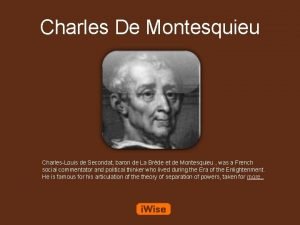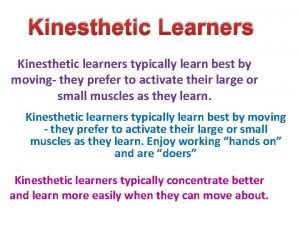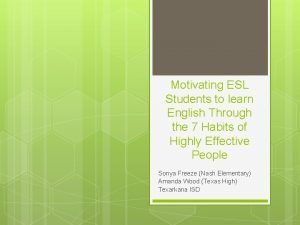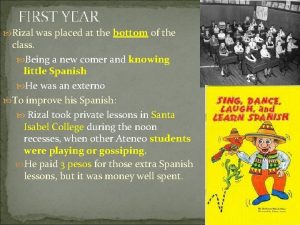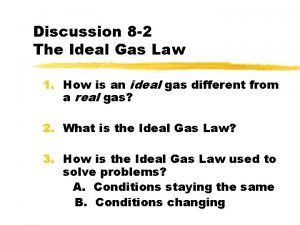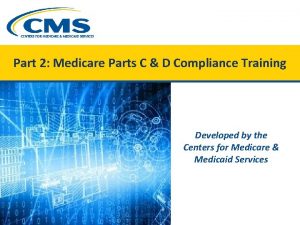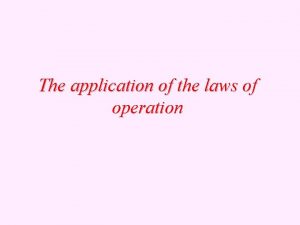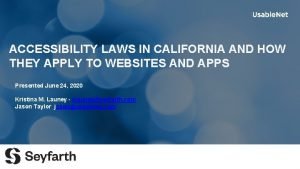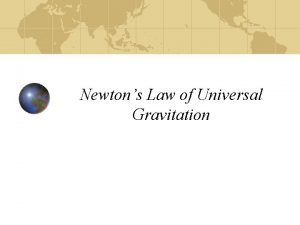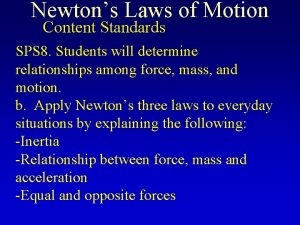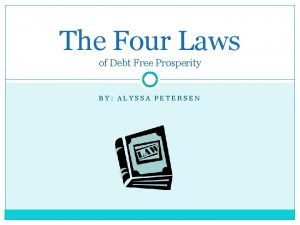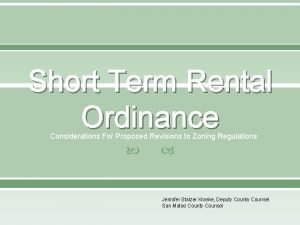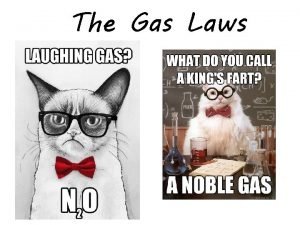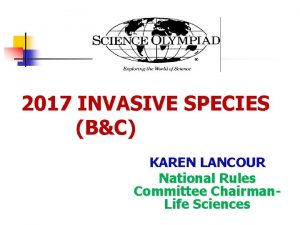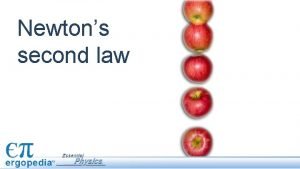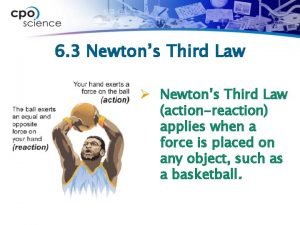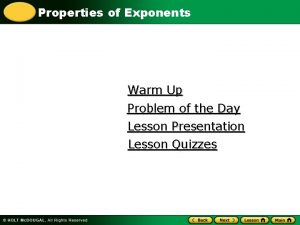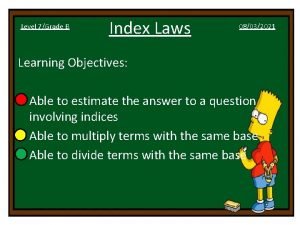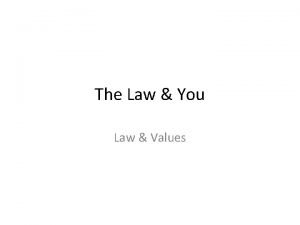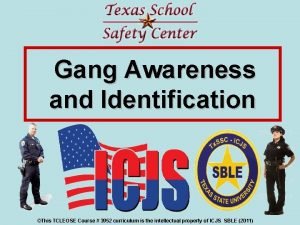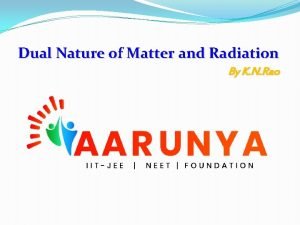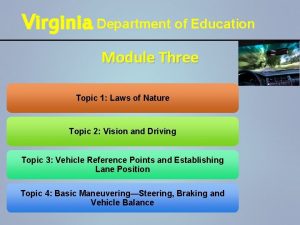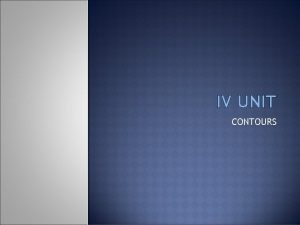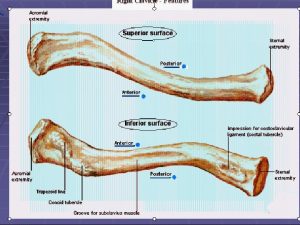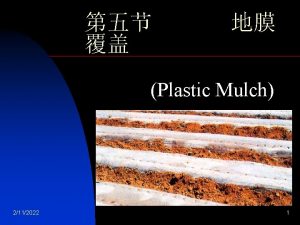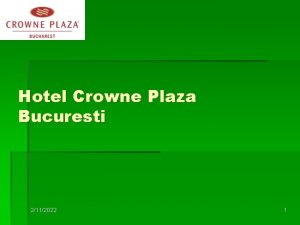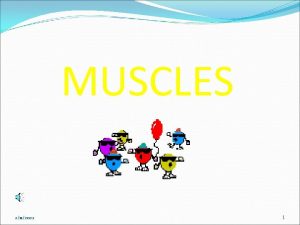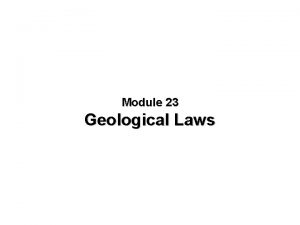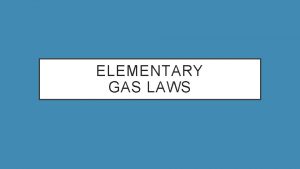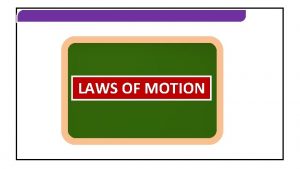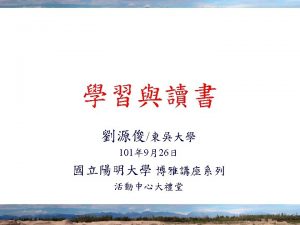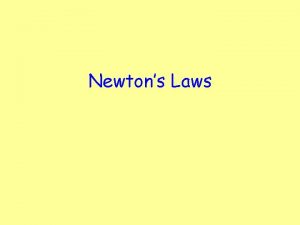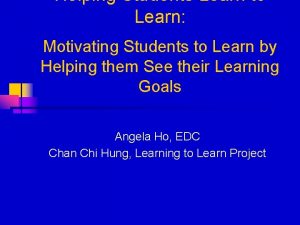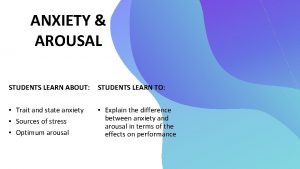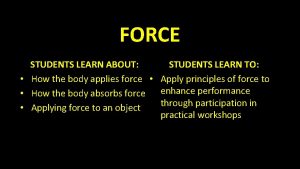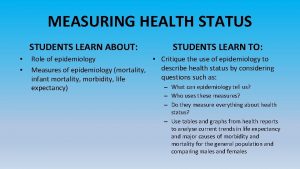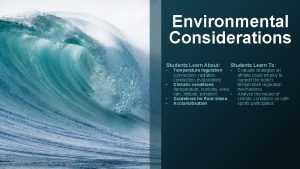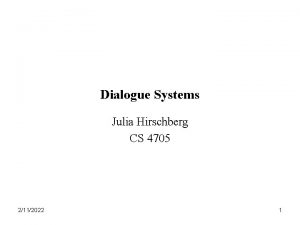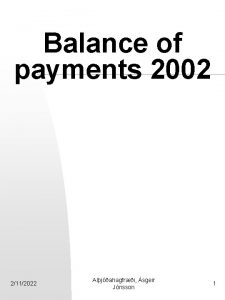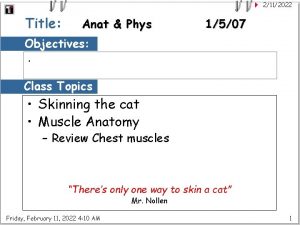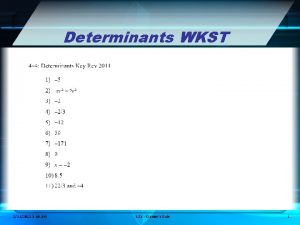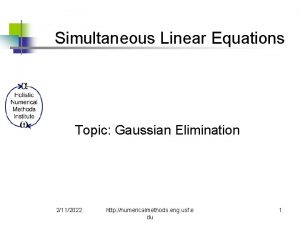How Students Learn 2112022 DidarMillenniumHow Students Learn Laws


























- Slides: 26

How Students Learn 2/11/2022 Didar-Millennium/How Students Learn

Laws of Learning 2/11/2022 Didar-Millennium/How Students Learn

Law of readiness Students learn more easily when they have a desire to learn. Conversely, students feel difficulty if they're not interested in the topic. 2/11/2022 Didar-Millennium/How Students Learn

Law of effect Learning will always be much more effective when a feeling of satisfaction, pleasantness, or reward is part of the process. 2/11/2022 Didar-Millennium/How Students Learn

Law of relaxation Students learn best and remember longest when they are relaxed. Reducing stress increases learning and retention. 2/11/2022 Didar-Millennium/How Students Learn

Law of association Learning makes sense (comprehension) when the mind compares a new idea with something already known. 2/11/2022 Didar-Millennium/How Students Learn

Law of involvement Students learn best when they take an active part in what is to be learned. 2/11/2022 Didar-Millennium/How Students Learn

Law of exercise The more often an act is repeated or information reviewed, the more quickly and more permanently it will become a habit or an easily remembered piece of information. 2/11/2022 Didar-Millennium/How Students Learn

Law of relevance Effective learning is relevant to the student's life. 2/11/2022 Didar-Millennium/How Students Learn

Law of intensity A vivid, exciting, enthusiastic, enjoyable learning experience is more likely to be remembered than a boring, unpleasant one. 2/11/2022 Didar-Millennium/How Students Learn

Law of challenge Students learn best when they're challenged with novelty, a variety of materials, and a range of instructional strategies. 2/11/2022 Didar-Millennium/How Students Learn

Law of feedback Effective learning takes place when students receive immediate and specific feedback on their performance. 2/11/2022 Didar-Millennium/How Students Learn

Law of recency Practicing a skill or new concept just before using it will ensure a more effective performance. 2/11/2022 Didar-Millennium/How Students Learn

Law of expectations Learners' reaction to instruction is shaped by their expectations related to the material (How successful will I be? ). 2/11/2022 Didar-Millennium/How Students Learn

Law of emotions The emotional state (and involvement) of students will shape how well and how much they learn. 2/11/2022 Didar-Millennium/How Students Learn

Law of differences Students learn in different ways. One size does not fit all! 2/11/2022 Didar-Millennium/How Students Learn

Dimensions of Learning 2/11/2022 Didar-Millennium/How Students Learn

• • • Confidence and independence Knowledge and understanding Skills and strategies Use of prior and emerging experience Critical reflection 2/11/2022 Didar-Millennium/How Students Learn

Positive Attitudes and Perceptions about Learning • Establish a relationship with each student in the class. • Practice positive classroom behavior. • Provide opportunities for students to work together in cooperative groups. 2/11/2022 Didar-Millennium/How Students Learn

• Establish and communicate classroom rules. • Use a variety of ways to engage students. • Provide appropriate feedback. • Teach students to use positive selftalk. • Provide clear performance levels for tasks. 2/11/2022 Didar-Millennium/How Students Learn

Acquiring and Integrating Knowledge • Help students understand what it means to construct meaning. • Have students use graphic organizers to organize information. 2/11/2022 Didar-Millennium/How Students Learn

• Have students create pictorial representations of information. • Help students construct models. • Point out common errors and pitfalls. • Help students set up a practice schedule. 2/11/2022 Didar-Millennium/How Students Learn

Extending and Refining Knowledge • Compare. How are these things alike? • Classify. Into what groups could you organize these things? • Induce. Based on this information, what is the likely conclusion? 2/11/2022 Didar-Millennium/How Students Learn

• Deduct. What predictions can you make, or what conclusions can you draw? • Analyze errors. How is this information misleading? • Construct support. What is an argument that will support this claim? • Abstract. What is the general pattern underlying this information? • Analyze perspectives. What is the reasoning behind this perspective? 2/11/2022 Didar-Millennium/How Students Learn

Using Knowledge Meaningfully Six kinds of thinking processes can be used to encourage students to use knowledge meaningfully: • Decision-making • Problem-solving • Invention • Experimental inquiry • Investigation • Systems analysis 2/11/2022 Didar-Millennium/How Students Learn

Productive Habits of Mind • Think critically. Be and see accurately. Be open-minded. • Think creatively. Push the limits of one's knowledge. Find new ways of looking at a situation. • Self-regulate. Be aware of one's own thinking. Evaluate the effectiveness of one's own actions. 2/11/2022 Didar-Millennium/How Students Learn
 Facts about montesquieu
Facts about montesquieu Kinesthetic imagery
Kinesthetic imagery How to motivate esl students
How to motivate esl students Why rizal called champion of filipino youth
Why rizal called champion of filipino youth Jim crow laws
Jim crow laws Hammurabi code of laws all 282
Hammurabi code of laws all 282 Different gas laws
Different gas laws Cd compliance
Cd compliance Associative law of multiplication
Associative law of multiplication California website accessibility laws
California website accessibility laws Newton's laws of universal gravitation
Newton's laws of universal gravitation Example of newton's first law
Example of newton's first law The four laws of financial prosperity
The four laws of financial prosperity San mateo short term rentals
San mateo short term rentals Direct vs indirect relationships
Direct vs indirect relationships Invasive species laws
Invasive species laws Application of newton's second law
Application of newton's second law Newton's third law in hockey
Newton's third law in hockey Exponent laws
Exponent laws Newton's 3 laws of motion
Newton's 3 laws of motion Negative indices
Negative indices Values definition law
Values definition law Aristotle laws of motion
Aristotle laws of motion Law of acceleration
Law of acceleration Jeff fort
Jeff fort Hertz hallwachs and lenard observation
Hertz hallwachs and lenard observation Drivers ed module 3 topic 1
Drivers ed module 3 topic 1
